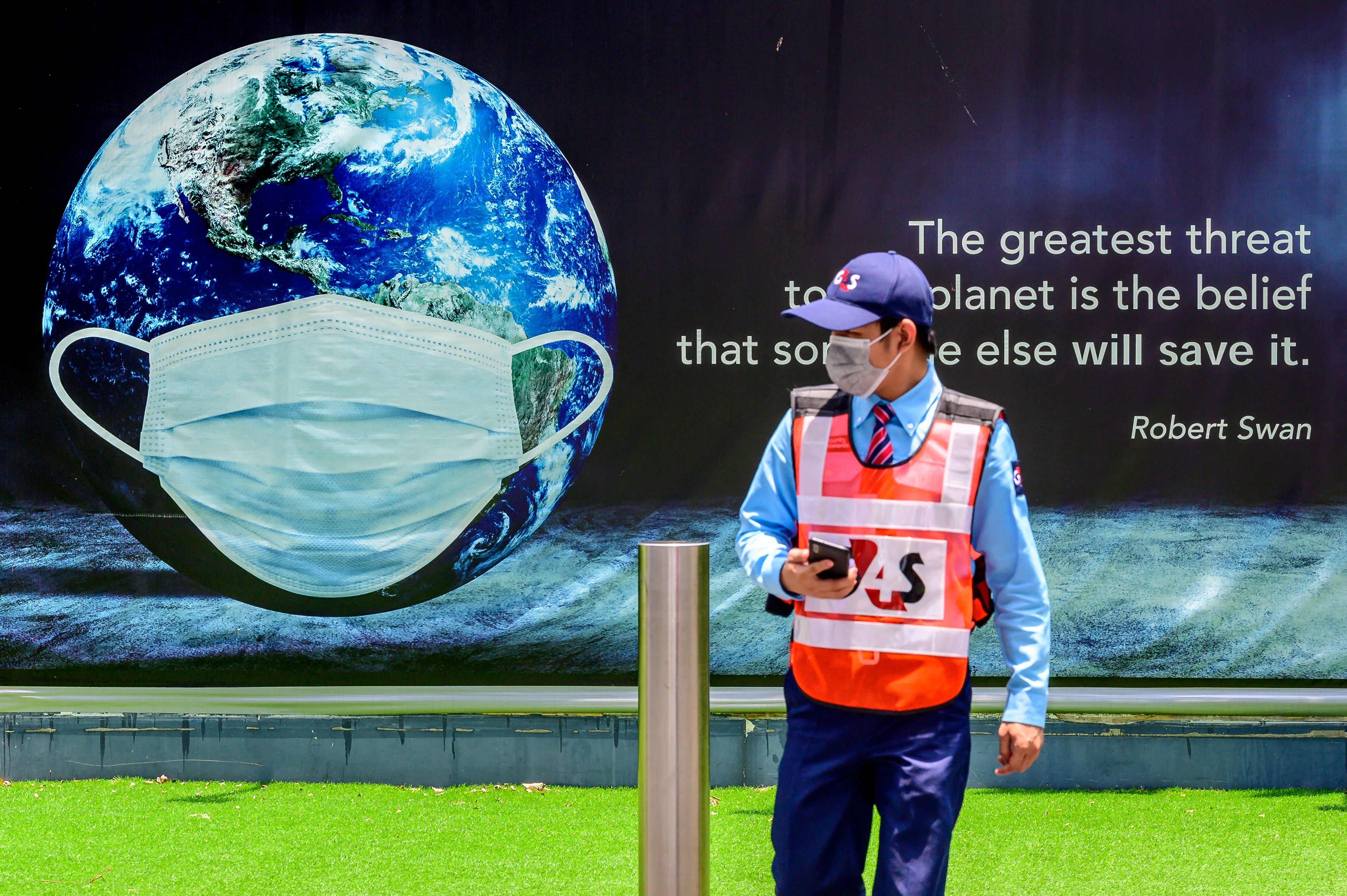For young activists like me, Earth Day means not giving up hope – or action. Here’s what we’ve got planned
We still have time to stop the climate crisis – the resources and technology already exist


Your support helps us to tell the story
From reproductive rights to climate change to Big Tech, The Independent is on the ground when the story is developing. Whether it's investigating the financials of Elon Musk's pro-Trump PAC or producing our latest documentary, 'The A Word', which shines a light on the American women fighting for reproductive rights, we know how important it is to parse out the facts from the messaging.
At such a critical moment in US history, we need reporters on the ground. Your donation allows us to keep sending journalists to speak to both sides of the story.
The Independent is trusted by Americans across the entire political spectrum. And unlike many other quality news outlets, we choose not to lock Americans out of our reporting and analysis with paywalls. We believe quality journalism should be available to everyone, paid for by those who can afford it.
Your support makes all the difference.Between Partygate and breaching international law by attempting to send asylum seekers from the UK to Rwanda, Boris Johnson doesn’t seem to have made the time for his usual annual Earth Day farce. Instead, he’s left that task to the Department for Education, which has announced a new GCSE in natural history to be introduced in 2025.
Dubbed the “climate change” GCSE, this qualification will teach students how plants and organisms are being impacted by the climate crisis. Yet it also fails to inform us of the whole truth of why that is, inevitably omitting the role colonialism and government failure have had in causing the climate crisis. While it is excellent that some students will have the opportunity to learn more about the world around us, it won’t even begin to tackle the problems we have at hand.
I was 14 when I first wrote a piece on Earth Day. Since then, I’ve gained 10 GCSEs, medical school offers, taken on five subjects at A-level, dropped a subject, gained the legal right to buy energy drinks, gained access to 15-rated movies, contributed to seven political party manifestos and two parliamentary bills, received a national insurance number, experienced a global pandemic and more.
But in all that time, the Conservatives still refuse to legislate for the crucial climate policy we need, like the Green New Deal, to tackle the problem. Instead, they’re choosing to virtue signal about being “climate leaders” and trying to distract us with a GCSE they won’t implement until the year by which greenhouse gas emissions must begin to decline to limit global heating to 1.5C.
Cop26 saw a series of disastrous and unambitious pledges. World leaders failed to agree on the phasing out of coal, or a decarbonisation target, and kept excluding those most impacted by the climate crisis from decision-making. And all the while the government continues to pump money into new oil and gas infrastructure.
But, this isn’t a call of despair. Contrary to what our government seems to believe, we aren’t stupid. We can see straight through their inaction, and we won’t stop until fossil fuels stop being used entirely.
We have achieved so much since the last Earth Day: cultural institutions, including the National Portrait Gallery and Scottish Ballet, have cut ties with fossil fuel companies, our Teach the Future bill made history by becoming the first student-written bill to pass its first reading in parliament, the Cambo oil field was paused, and hundreds of thousands of people joined climate protests across the country during Cop26.
We still have time to change things, and all of the resources, infrastructure and technology needed to do so already exist – all we have to do is get the government to implement it, and there’s no shortage of ways to do this.
We need a Green New Deal, which would rapidly phase out fossil fuels while also bridging inequality in society, centring climate justice and a just transition for all.
To keep up to speed with all the latest opinions and comment, sign up to our free weekly Voices Dispatches newsletter by clicking here
The government wants to let our fear of the future paralyse us from fighting back. There is no shortage of things we can do to change things, from taking to the streets with climate strikes or other climate justice-related protests, changing your bank and pension to ones that don’t fund fossil fuels or supporting bills such as our Climate Education Bill.
You can write to MPs, build mutual aid groups to create sustainable care structures in your community or join a protest group. There is so much value in educating ourselves on the climate crisis and its solutions, and there is a place for everyone in a local or national protest group.
The next few months will see more school climate strikes, the second reading of the Climate Education Bill, protests against oil sponsorship of cultural institutions, intense lobbying and an expansion of the global movement for climate justice.
When every fraction of a degree holds the fate of countless lives, the only choice that we have is to act. We cannot let apathy lull us into inaction – we have made so many gains and will see even more with your help this year.
Join our commenting forum
Join thought-provoking conversations, follow other Independent readers and see their replies
Comments